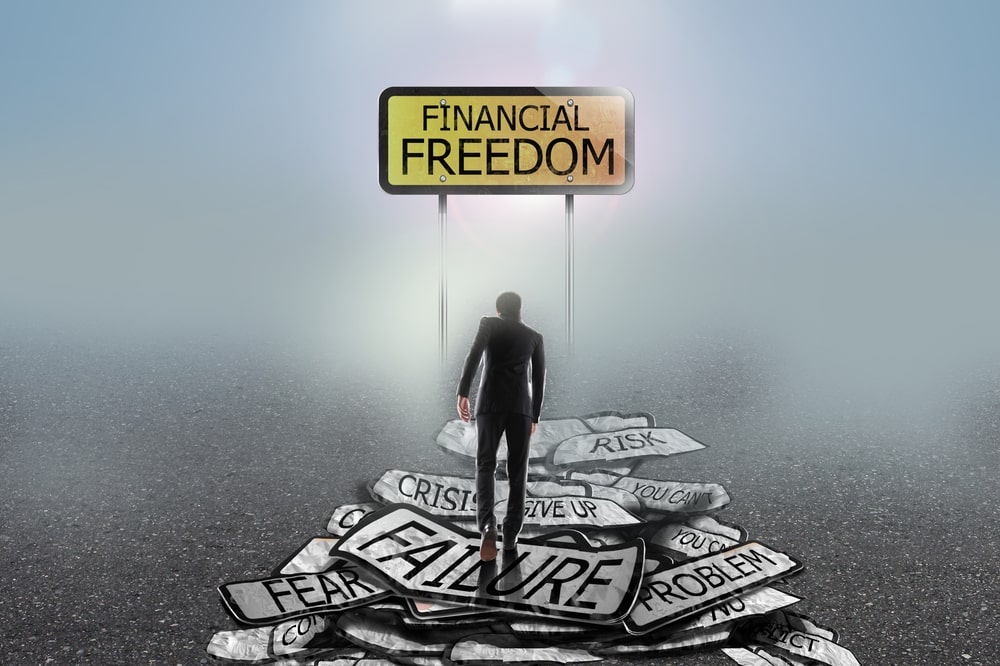Using Credit Cards for Everyday Expenses
When you use your credit card to cover the shortfalls in your spending, you can run up a huge amount of debt in a really short period. Plus, studies have shown that people tend to spend more money when they are paying with credit.
Not Having A Plan for Getting Out of Debt
Do not make excuses for not prioritising debt payments. Follow the principles of not spending more than you earn, stick to paying the amount you committed to paying your debt every month and have a deadline for paying off your debt.
Not Having A Budget
Failing to budget month after month means that you are not taking control of your financial situation. Without a budget, you can make decent money and still struggle to get by. Track your spending to make sure that you are sticking with your budget. You can do this through a myriad number of ways, including pen and paper or use these budget templates.
Not Having Enough Emergency Savings
Emergency money does not mean a few Rands to help with some unexpected expenses. It should be enough to sustain you if you get ill or lose your job. Living salary to salary with limited emergency funds can be detrimental. Many financial planners will tell you to keep three months’ worth of expenses in an account where you can access it quickly.
Buying A New Car
Being able to afford the monthly payment on your car is not the same as being able to afford the car. By borrowing money to buy a car, you pay interest on a depreciating asset, which amplifies the difference between the value of the car and the price paid for it. Consider buying a car that uses less fuel and costs less to insure and maintain. Cars are expensive, and if you are buying more car than you need, you are burning through money that could have been saved or used to pay off debt.
Not Having Insurance
Long-term insurance, short-term insurance, disability insurance, and medical aid/insurance are things many people choose to go without to save money. But this is not a wise financial decision since your car or health insurance is your safety net. Furthermore, in the event of your unexpected death, how would your family cover immediate expenses as well as long-term ones if they are not well protected?
Not Saving for Retirement When You Are Employed
You should be saving for retirement whenever you’re making money because there will be a time when you won’t be making any money—but you’ll still have to support yourself then. The sooner you begin saving, the more time your money has to grow. Each year’s gains can generate their gains the next year – a powerful wealth-building phenomenon known as compounding.
Jumping into The Stock Market Head-First
Do not start investing in the stock market without building an emergency account equal to at least a year’s worth of your monthly expenses. When markets start to tank, and you quickly need cash to deal with an emergency, you may have to sell at a loss. Often people sell shares at the bottom of the market, losing confidence that their investments will ever recover. The solution is to only view your share statement once a year, and not to stop investing monthly amounts even amid market mayhem.
Not Having A Will If You Have Minor Children
One of the most important functions a will serves is to provide for guardians of the person (actual care and custody) and the estate (inheritance) of minor children. The will should set up trusts to hold and administer any assets they inherit until such age as you determine they would be old enough to manage them on their own.
Not Having A Plan for Your Finances
If you do not have a plan in place for your finances for paying down debt, building savings, or setting aside enough for retirement, you are not getting ahead. Make spending some time planning your finances a priority.
The Bottom Line
To steer yourself away from the dangers of overspending, start by monitoring the little expenses that add up quickly, then move on to monitoring the big expenses. Think carefully before adding new debts to your list of payments, and keep in mind that being able to make a payment is different from being able to afford the purchase. Finally, make saving some of what you earn a monthly priority, along with spending time developing a sound financial plan.

